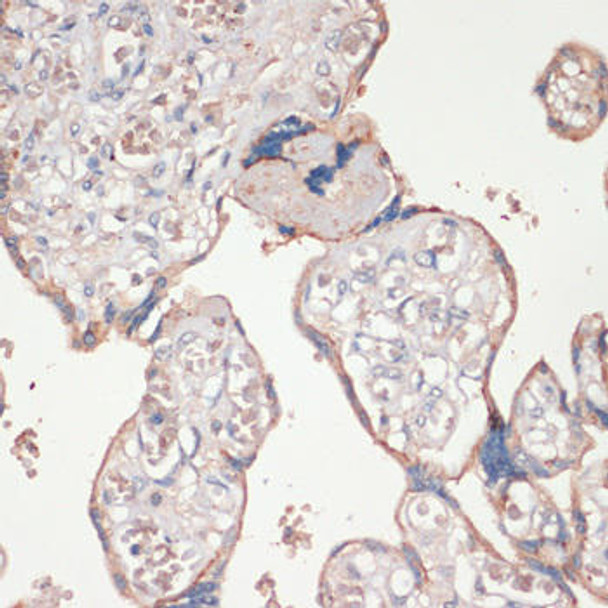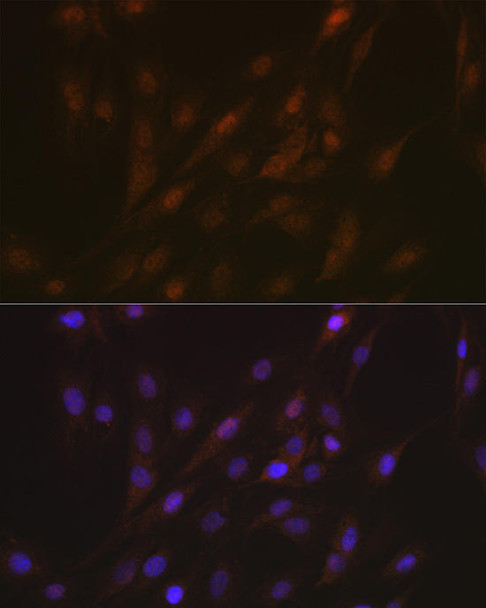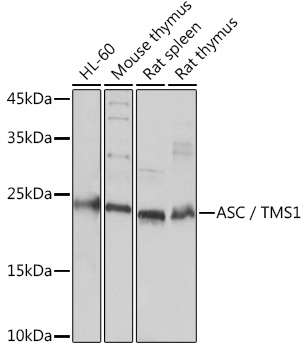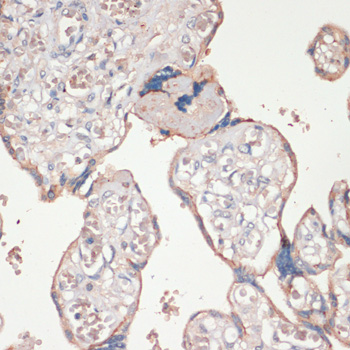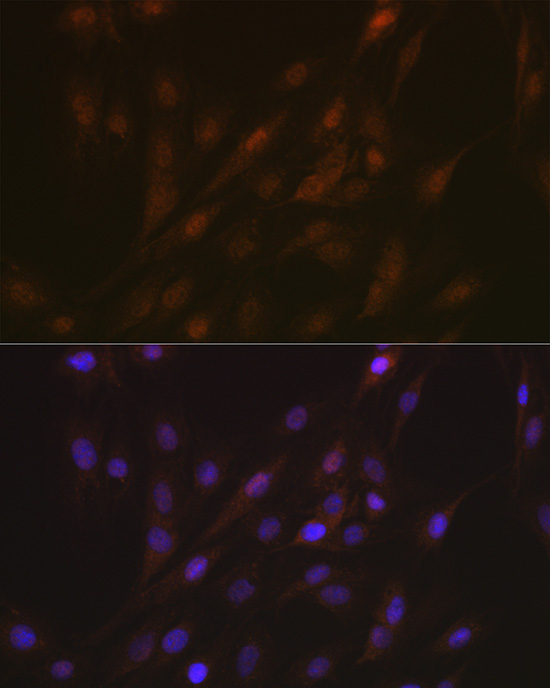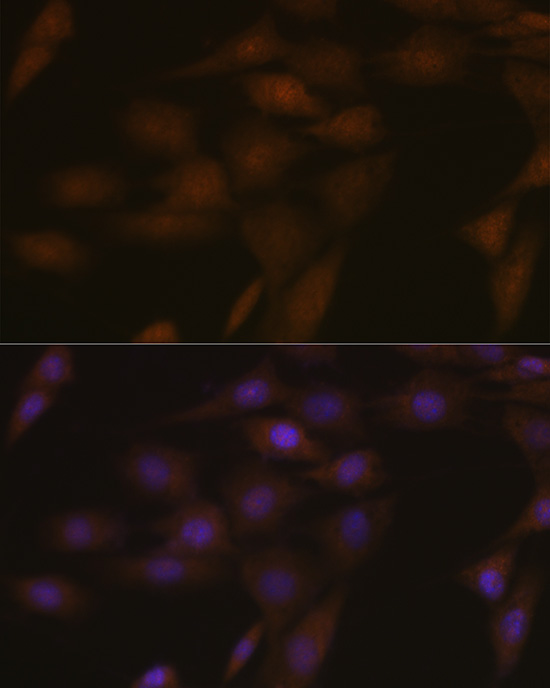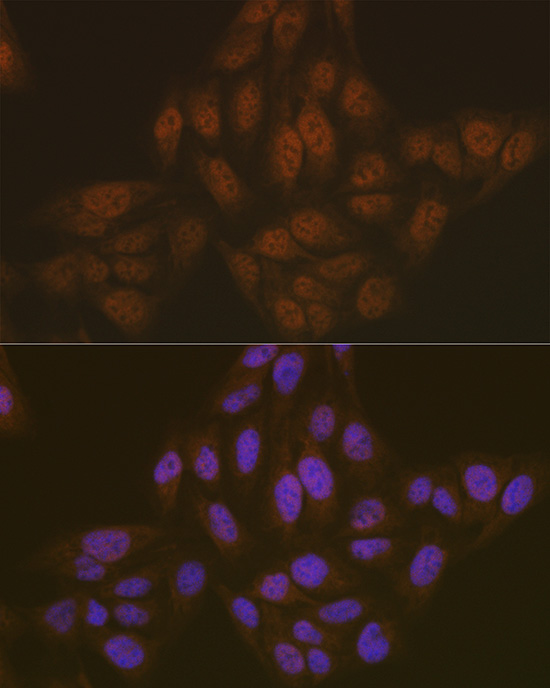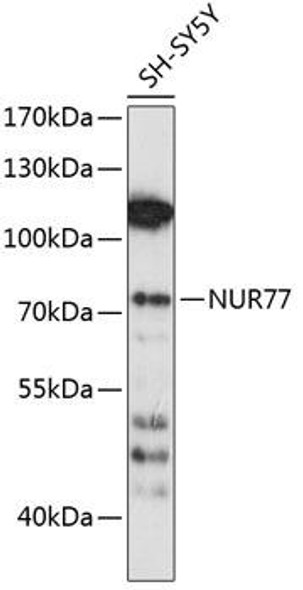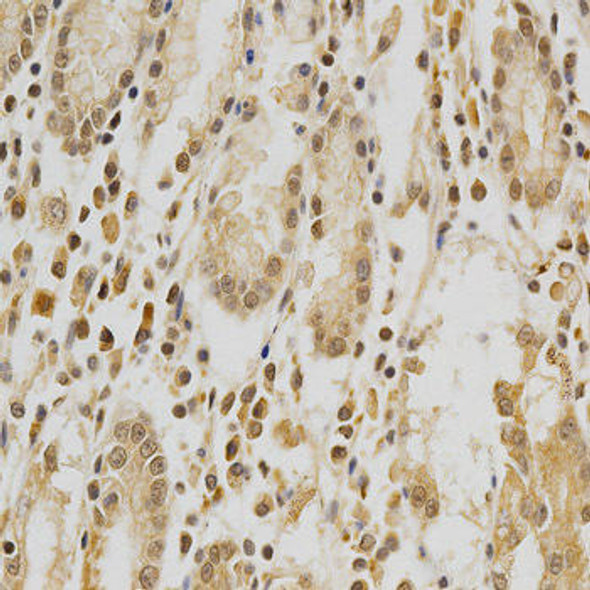Description
Anti-ASC / TMS1 Antibody (CAB16672)
The PYCARD Polyclonal Antibody (CAB16672) is a vital tool for researchers investigating the PYCARD protein, also known as ASC (apoptosis-associated speck-like protein containing a CARD). This protein plays a key role in the formation of inflammasomes, which are crucial components of the innate immune system's response to pathogens and cellular stress.Raised in rabbits, this antibody has high reactivity with human samples and has been validated for use in Western blot applications. By binding specifically to the PYCARD protein, this antibody enables accurate detection and analysis in various cell types.
Its precision and reliability make it an excellent choice for studies in immunology, inflammation, and infectious diseases.The PYCARD Polyclonal Antibody is indispensable for research into the mechanisms underlying inflammation, immune responses, and cell death pathways. By studying the function and regulation of PYCARD, researchers can gain valuable insights into the development of therapies for inflammatory disorders, infectious diseases, and cancer. Unlocking the mysteries of PYCARD paves the way for innovative approaches to treating a wide range of human health conditions.
| Antibody Name: | Anti-ASC / TMS1 Antibody |
| Antibody SKU: | CAB16672 |
| Antibody Size: | 20uL, 50uL, 100uL |
| Application: | WB IHC IF IP |
| Reactivity: | Human, Mouse, Rat |
| Host Species: | Rabbit |
| Immunogen: | Recombinant protein of human ASC / TMS1 |
| Application: | WB IHC IF IP |
| Recommended Dilution: | WB 1:500 - 1:2000 IHC 1:50 - 1:200 IF 1:50 - 1:200 IP 1:50 - 1:200 |
| Reactivity: | Human, Mouse, Rat |
| Positive Samples: | HL-60, Mouse thymus, Rat spleen, Rat thymus |
| Immunogen: | Recombinant protein of human ASC / TMS1 |
| Purification Method: | Affinity purification |
| Storage Buffer: | Store at -20'C. Avoid freeze / thaw cycles. Buffer: PBS with 0.02% sodium azide, 50% glycerol, pH7.3. |
| Isotype: | IgG |
| Sequence: | Email for sequence |
| Gene ID: | 29108 |
| Uniprot: | Q9ULZ3 |
| Cellular Location: | Cytoplasm, Endoplasmic reticulum, Mitochondrion, Nucleus |
| Calculated MW: | 15kDa/19kDa/21kDa |
| Observed MW: | 22KDa |
| Synonyms: | PYCARD, ASC, CARD5, TMS, TMS-1, TMS1, PYD and CARD domain containing, ASC / TMS1 |
| Background: | This gene encodes an adaptor protein that is composed of two protein-protein interaction domains: a N-terminal PYRIN-PAAD-DAPIN domain (PYD) and a C-terminal caspase-recruitment domain (CARD). The PYD and CARD domains are members of the six-helix bundle death domain-fold superfamily that mediates assembly of large signaling complexes in the inflammatory and apoptotic signaling pathways via the activation of caspase. In normal cells, this protein is localized to the cytoplasm; however, in cells undergoing apoptosis, it forms ball-like aggregates near the nuclear periphery. Two transcript variants encoding different isoforms have been found for this gene. |
| UniProt Protein Function: | PYCARD: Promotes caspase-mediated apoptosis. This proapoptotic activity is mediated predominantly through the activation of caspase-9. May be a component of the inflammasome, a protein complex which also includes NALP2, CARD8 and CASP1 and whose function would be the activation of proinflammatory caspases. Forms complexes with other DAPIN domain-containing proteins. Interacts with CIAS1/PYPAF1 and PYDC1. Widely expressed at low levels. Detected in peripheral blood leukocytes, lung, small intestine, spleen, thymus, colon and at lower levels in placenta, liver and kidney. Very low expression in skeletal muscle, heart and brain. Detected in the leukemia cell lines HL-60 and U-937, but not in Jurkat T- cell lymphoma and Daudi Burkitt's lymphoma. Detected in the melanoma cell line WM35, but not in WM793. Not detected in HeLa cervical carcinoma cells and MOLT-4 lymphocytic leukemia cells. 3 isoforms of the human protein are produced by alternative splicing. |
| UniProt Protein Details: | Protein type:Tumor suppressor; Adaptor/scaffold Chromosomal Location of Human Ortholog: 16p11.2 Cellular Component: cell soma; mitochondrion; endoplasmic reticulum; cytoplasm; nucleolus; extracellular region; IkappaB kinase complex; cytosol; nucleus Molecular Function:protein binding; protein homodimerization activity; protease binding; caspase activator activity; Pyrin domain binding Biological Process: myeloid dendritic cell activation during immune response; apoptosis; positive regulation of apoptosis; regulation of protein stability; positive regulation of caspase activity; positive regulation of JNK cascade; positive regulation of interleukin-1 beta secretion; positive regulation of activated T cell proliferation; signal transduction; defense response to Gram-negative bacterium; activation of NF-kappaB transcription factor; tumor necrosis factor-mediated signaling pathway; positive regulation of phagocytosis; inflammatory response; DNA damage response, signal transduction by p53 class mediator resulting in induction of apoptosis; defense response to virus; positive regulation of adaptive immune response; caspase activation; interleukin-1 beta production; positive regulation of interleukin-6 production; negative regulation of I-kappaB kinase/NF-kappaB cascade; positive regulation of tumor necrosis factor production; negative regulation of interferon-beta production; myeloid dendritic cell activation; positive regulation of interferon-gamma production; positive regulation of actin filament polymerization; inhibition of NF-kappaB transcription factor; regulation of inflammatory response; innate immune response; regulation of autophagy; positive regulation of transcription factor activity; positive regulation of T cell activation; positive regulation of defense response to virus by host; activation of innate immune response; positive regulation of antigen processing and presentation of peptide antigen via MHC class II |
| NCBI Summary: | This gene encodes an adaptor protein that is composed of two protein-protein interaction domains: a N-terminal PYRIN-PAAD-DAPIN domain (PYD) and a C-terminal caspase-recruitment domain (CARD). The PYD and CARD domains are members of the six-helix bundle death domain-fold superfamily that mediates assembly of large signaling complexes in the inflammatory and apoptotic signaling pathways via the activation of caspase. In normal cells, this protein is localized to the cytoplasm; however, in cells undergoing apoptosis, it forms ball-like aggregates near the nuclear periphery. Two transcript variants encoding different isoforms have been found for this gene. [provided by RefSeq, Jul 2008] |
| UniProt Code: | Q9ULZ3 |
| NCBI GenInfo Identifier: | 18203507 |
| NCBI Gene ID: | 29108 |
| NCBI Accession: | Q9ULZ3.2 |
| UniProt Related Accession: | Q9ULZ3 |
| Molecular Weight: | 21 KD |
| NCBI Full Name: | Apoptosis-associated speck-like protein containing a CARD |
| NCBI Synonym Full Names: | PYD and CARD domain containing |
| NCBI Official Symbol: | PYCARD |
| NCBI Official Synonym Symbols: | ASC; TMS; TMS1; CARD5; TMS-1 |
| NCBI Protein Information: | apoptosis-associated speck-like protein containing a CARD |
| UniProt Protein Name: | Apoptosis-associated speck-like protein containing a CARD |
| UniProt Synonym Protein Names: | Caspase recruitment domain-containing protein 5; PYD and CARD domain-containing protein; Target of methylation-induced silencing 1 |
| Protein Family: | Ascalin |
| UniProt Gene Name: | PYCARD |
| UniProt Entry Name: | ASC_HUMAN |

